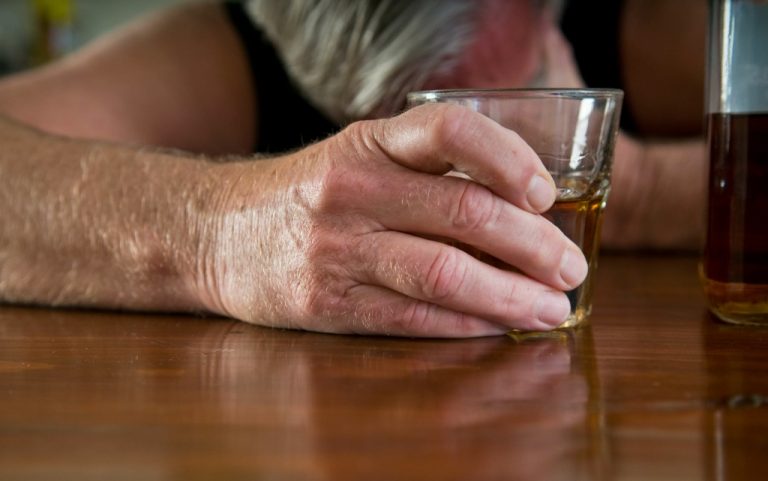The original research cited in this review was supported by Merit Review grants BX and BX from the U.S. Department of Veterans Affairs, Office of Research and Development (Biomedical Laboratory Research and Development); BX004853, Research Career Scientist Award from the U.S. Department of Veterans Affairs; and National Institute on Alcohol Abuse and Alcoholism, National Institutes of Health grants AA020735, AA027367, AA024254, and AA026723. While it may be tempting to rush into recovery at this point, experts actually caution against this sort of sudden action. In their book “Changing for Good,” psychologists James Prochaska, John Norcross and Carlo DiClemente warn that those who “cut short the preparation stage” are more likely to fail.
- Ultimately, the consequences of drinking after achieving sobriety can be far-reaching, impacting not only your life but your loved ones as well.
- This is a small list, but any of the points on it would be good signs that you may need outside intervention.
- This review is the result of work supported with resources and the use of the facilities at the Omaha Veterans Affairs Medical Center.
- Social situations can be challenging for those in recovery, with the pressure to drink often present in various settings.
- The reduced risk of chronic conditions such as liver diseases, pancreatitis, and certain cancers becomes more pronounced.
What is the prognosis for someone with alcohol withdrawal?

It’s helpful to have a relapse prevention plan that considers these triggers, with specifically identified strategies to address them. Drinking again after sobriety can also strain your relationships with friends and family. Loved ones who’ve supported you through your journey to recovery may feel hurt, betrayed, or worried about your well-being. Remember that you’re not alone in this, and seeking help from a support network or therapist can make a world of difference. You don’t have to stay sober forever, but you should make decisions that are beneficial to your health and safety.
What are the benefits of living a sober life?
Trust me, it’s a tightrope walk, and the line between supporting and enabling? And I didn’t want to hear that because, deep down, I already knew. The truth is, people rejecting help aren’t defiant—they’re scared of http://turgenev-lit.ru/words/0-DEN/turgenev/den.htm the mirror you’re holding up. She has more than 25 years of journalism experience including with the Dallas Observer, Austin Chronicle, Salon.com and Texas Monthly. She is the author of the 2015 best-selling memoir «Blackout» and was the host/creator of the Texas Monthly podcast «America’s Girls,» about the Dallas Cowboys Cheerleaders.
So things were good, but things were bad, because Kemp had been hiding bottles in his car for months. He’d been slipping out of the house at night after the family went to bed. The holidays are about joy, connection, and creating memories—not about burning out or waking up regretting your choices. By prioritizing your needs, making a plan, and giving yourself grace, you’ll set the stage for a season that feels as magical as it looks. “If you’re feeling flat, it’s unfortunately part of the recovery process, but try to take a walk or reengage in the activities that used to be pleasurable for you,” he said.
Social fitness is the biggest predictor of a happy life. Here’s how to improve yours
This is due to the changes in their brain chemistry due to their drinking. As with other chronic diseases, alcohol use disorder has treatment options and can be managed. Resources such as Lantana Recovery can offer professional help with alcohol use disorder, the urge to drink, or anything related to alcoholism treatment. By utilizing these resources and maintaining a strong support network, individuals can confidently navigate the challenges of recovery and enjoy a fulfilling, sober life.

Some people believe that drinking dreams are a warning about an impending relapse and that the dreamer should seek support quickly. While I can concede that sometimes that might be true, I don’t believe that it always is. As time has gone on, I have fewer dreams about booze, and they don’t usually involve the actual act of drinking anymore. Now, when I have drinking dreams, it’s usually the day after drinking and I have all the feelings of guilt, shame, disappointment, and anger. The feelings of self-loathing are overwhelming, and even though I feel relieved when I wake up and realize it was a dream, I have trouble shaking them. Approximately 15 percent of those who relapse regress to the precontemplation stage, and approximately 85 percent return to the contemplation stage before progressing to the preparation and action stages.

A lapse is a brief return to drinking or using drugs, but the http://startface.net/interesnye/39389-yarushin-iz-univera-pokazal-svoy-novyy-imidzh-no-na-foto-ego-ne-uznali-dazhe-samye-predannye-fanaty.html individual quickly stops again. Relapsing is when the individual returns to drinking or using drugs after a period of sobriety. Relapsing is when an individual returns to drinking or using drugs after a period of sobriety, which differs from a lapse where they briefly drink but then quickly stop again. As you likely know, alcohol can do a number on your brain, your liver, and your judgment. Here’s a quick overview of what happens when you stop drinking.
- Although many people are tempted to make other major life changes during this stage of recovery, such as changing jobs, experts recommend focusing energy on stopping drinking for at least the first year.
- The decision to abstain from alcohol or attempt moderate drinking varies for each individual, with factors such as personal history, genetics, and environmental influences playing a role in determining the best approach.
- To date, the results appear promising that cessation of alcohol consumption indeed allows partial or full recovery, depending on the parameter being measured.
- Relapse is characterized by a return to the unhealthy behaviors and negative consequences that characterize addiction.
- These stages can help prevent relapse and support people to live healthier, fuller lives.
The first step to long-term sobriety is to safely rid your body of alcohol (detoxification or detox), so it can start https://e-mallorca.com/the-effect-of-alcohol-on-human-health.html to regain normal function and balance. Detoxing from alcohol is potentially dangerous and should be conducted under close medical supervision. Our state-specific resource guides offer a comprehensive overview of drug and alcohol addiction treatment options available in your area. While relapsing can bring about shame and feelings of failure, a relapse is generally accepted as an expected part of the recovery process for most people.
Then it became a 16-hour-a-day boot camp to get his act together, to confront the problems leading him to drink. He didn’t have his phone, so he couldn’t connect with his wife and kids outside supervised calls. Kristin Kemp is sweet-natured, quick to laugh, but she is direct. An executive who works in international supply chains, she gets things done. She found a treatment center in the southern part of the Hill Country, an old hunting lodge on thousands of acres. Leaving home for an undetermined span of time sounded awful to Kemp.
